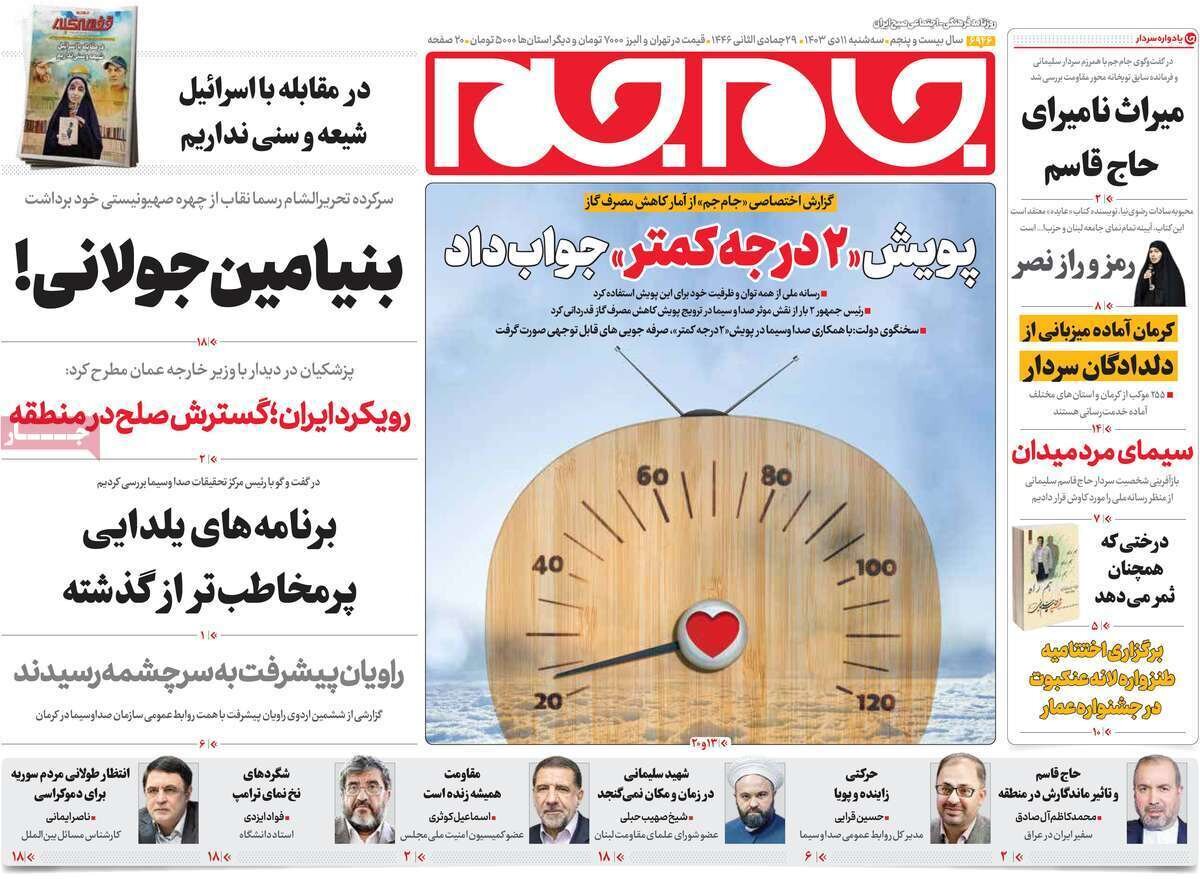Diplomacy against trigger mechanism

TEHRAN - In a note, Jam-e-Jam addressed Iran's diplomatic actions on the nuclear issue and wrote: 2025 is an important year for Iran's nuclear issue.
Western pressure to activate the snapback is a serious warning that can lead Iran's nuclear negotiations into a new and challenging path. However, the Islamic Republic of Iran is not going to neglect diplomatic ways to reduce tension. Perhaps reaching an agreement that respects Iran's red lines and the United States gives real guarantees is one of these solutions. It is based on this framework that (Foreign Minister) Araghchi visited China and openly declared that the nuclear issue was one of the main issues for consultation with the Chinese side. China, as one of the permanent members of the UN Security Council and one of the main parties to the JCPOA, plays an important role in the equations related to the nuclear deal. Araghchi's trip to Beijing, at a time when the West is pushing for reviving the trigger mechanism, clearly shows that Tehran is seeking to create new diplomatic alliances to neutralize the provocative actions of the Western parties.
Hamshahri: Shared threats push China, Russia and Iran together
In an article, Hamshahri dealt with Iran’s view towards the East and said: The prospect of 2025 indicates new developments that make it essential to deepen strategic relations between the Russia-Iran-China triangle. While tensions in West Asia are continuing unabated due to the continuation of the Zionist regime’s aggressions, the looming changes in the White House have become the basis for active diplomatic movements by different countries to coordinate their strategies with each other. The recent diplomatic consultations between Moscow, Tehran, and Beijing show that these three countries are preparing to enter a new era of bilateral and trilateral relations by capitalizing on their common goals, approaches, and interests in many areas. The common point of the diplomatic talks between these three countries is common enemies. The existence of common threats against Iran, Russia, and China from the Western side has pushed these three countries to deepen strategic cooperation.
Iran: Incheh Borun, Iran's gateway to Silk Road and Eurasia
The Iran newspaper highlighted Tehran’s view toward the east of the world. Today, there are many capacities for the Islamic Republic of Iran in the east of the world. One of the important and major capacities is the Silk Road, which is supposed to connect China from the political and economic East to the political and economic West. Iran is at the focal point of this path. The second capacity is the Eurasian Economic Union, which provides an 800-billion-dollar market for the Islamic Republic of Iran. The point here is that Iran has a very special relative advantage in facing these two major capacities. This relative special advantage is the free zone of Incheh Borun. Rarely, there is a country in the world with such a geostrategic situation that can connect two economic worlds together: East and the West. Incheh Borun has this capacity. It has a special advantage that helps Iran to economically and commercially connect the east and the west of the world. Today, we should know about the needs of Iran and the world and have a national view of the region with an international prospect.
Donya-e-Eqtesad: Iran's closeness with Arab governments of Cooperation Council
In a commentary, Donya-e-Eqtesad discussed the visit of Oman's Foreign Minister Badr al-Busaidi to Tehran and wrote: Trump's return to the White House has made Muscat show its willingness to again activate negotiation channels with Iran. On the other side, Tehran, which has started talks with Europe, is willing to see such a role on the part of a friendly and neighboring country. In addition to nuclear and trade issues that have consolidated relations between the Islamic Republic of Iran and Oman, regional issues, especially Syria, also form the third axis of this trip. Although Oman has a neutral stance on regional and international conflicts as it follows a balanced foreign policy, any political instability in the region in the future can cause concern for this actor in the south of the Persian Gulf. Therefore, Muscat is trying to align with Iran's approach after the fall of Bashar al-Assad. Iran's proximity with the Arab governments of the (Persian Gulf) Cooperation Council, after decades of ups and downs, is more than ever effective in marking a new page in neighborhood relations in the Persian Gulf.

Leave a Comment